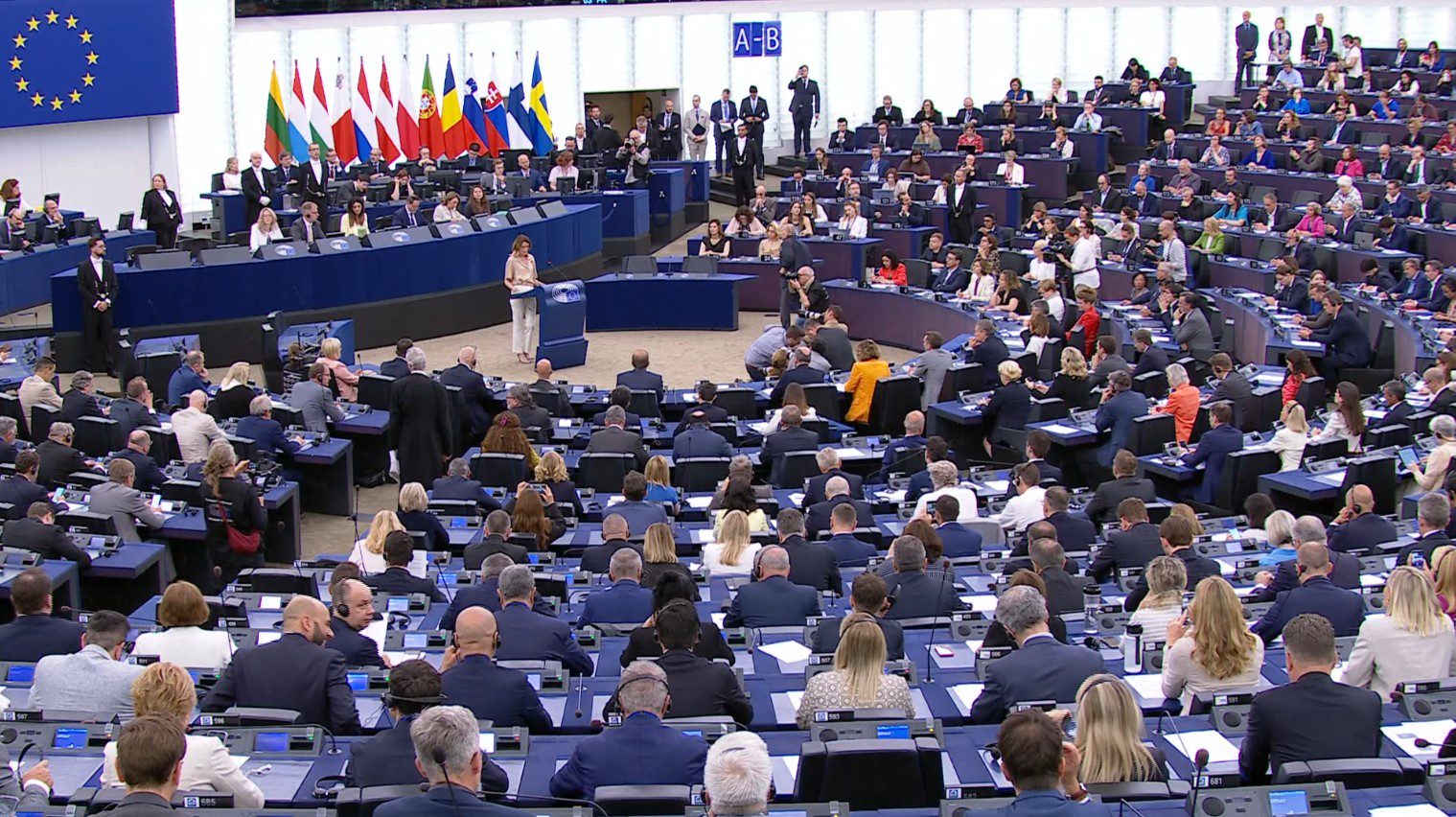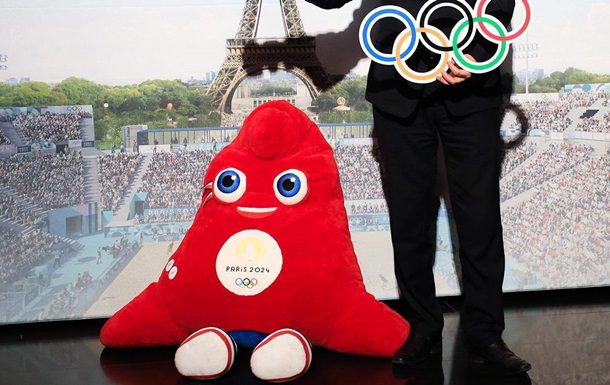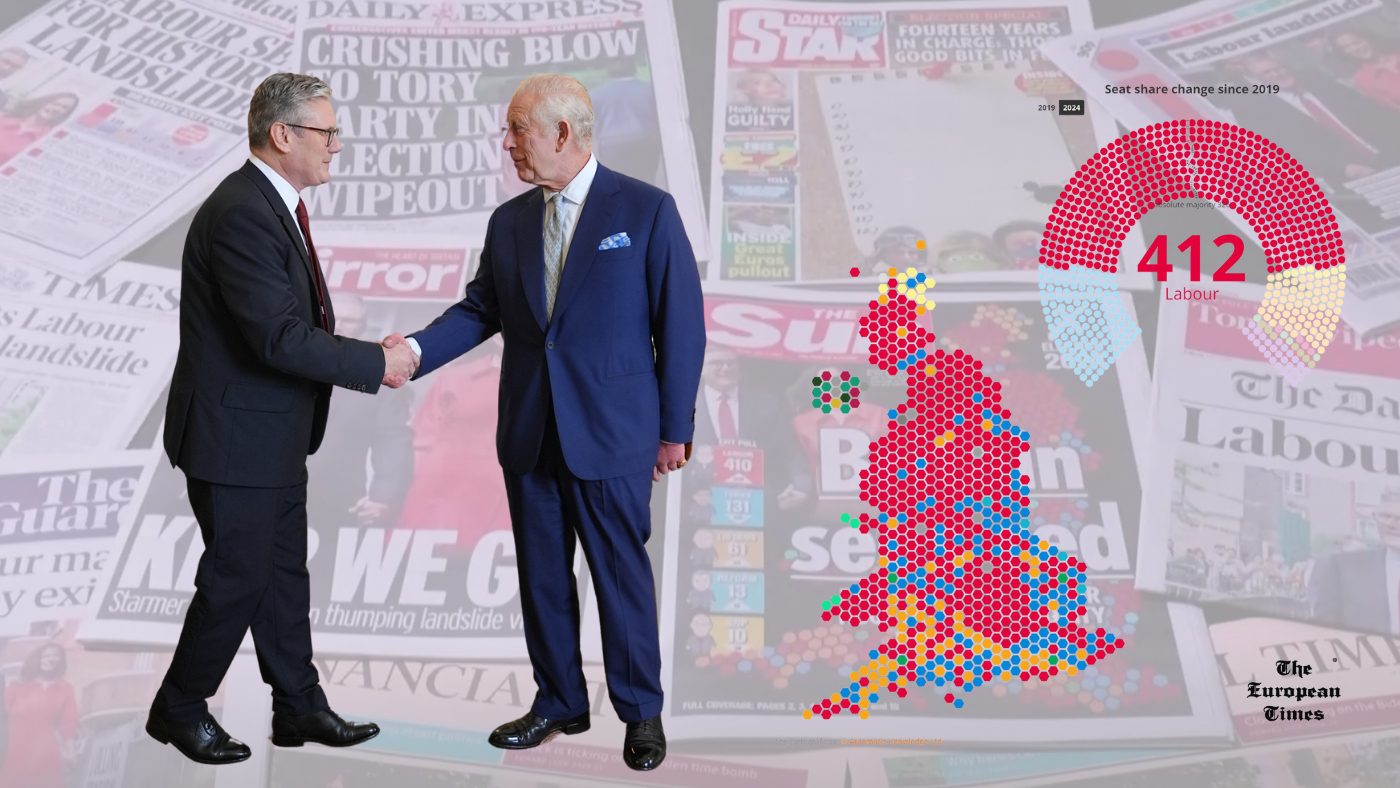Politics
Evaluating the EU’s Position and Challenges Ahead for the 13th WTO Ministerial Conference
As the World Trade Organization (WTO) gears up for its 13th Ministerial Conference (MC13), the European Union (EU)’s stance and proposals have emerged as pivotal talking points. The EU’s vision, while ambitious, also opens up a spectrum of discussions on the feasibility, inclusivity, and broader implications of its proposed reforms for the global trading system.
At the heart of the EU’s agenda is a call for significant reforms within the WTO, leveraging the momentum from the outcomes of MC12 in June 2022. The EU envisions a comprehensive package at MC13 that could lay the groundwork for further reforms by MC14. This approach underscores the EU’s commitment to a stable and predictable rules-based trading system. However, this vision, while commendable for its optimism, may face hurdles due to the diverse interests and capacities of WTO members. Achieving consensus on wide-ranging reforms requires navigating complex negotiations and balancing differing national priorities, which historically have been challenging within the WTO framework.
The EU’s enthusiasm for the accession of Comoros and Timor-Leste to the WTO is notable, marking these as positive steps toward inclusivity and economic reform. These accessions, the first since 2016, indeed highlight the continued relevance of the WTO. Nonetheless, the broader challenge of ensuring that new and existing members, especially developing and least-developed countries (LDCs), can fully benefit from the WTO system remains. The integration of these countries into the global trading system involves addressing structural barriers and ensuring that WTO rules and negotiations reflect their interests and capacities.
Reform of the WTO’s core functions, including a fully functioning dispute settlement system and the unblocking of the Appellate Body, is identified as an absolute priority by the EU. While the need for these reforms is widely acknowledged, the path to achieving them is fraught with complexity. The dispute resolution impasse, for instance, is symptomatic of deeper issues related to governance and the balance of power within the WTO, reflecting broader geopolitical tensions.
The EU’s push for the ratification and implementation of the Agreement on fisheries subsidies from MC12 is a testament to its commitment to sustainability. This move, while systemically significant, also highlights the challenges of aligning multilateral trade rules with environmental goals. The effectiveness of such agreements in practice depends on their enforceability and the willingness of members to comply, raising questions about the WTO’s capacity to address global concerns like sustainability.
On digital trade, the EU’s support for renewing the moratorium on customs duties on electronic transmissions and advancing the e-commerce Work Programme reflects an attempt to keep pace with the digitalization of the global economy. However, this area also illustrates the tension between promoting open digital trade and addressing concerns about digital divides, taxation, and data governance.
The EU’s stance on addressing food security challenges, particularly in the context of the war in Ukraine, underscores the intersection of trade policies with geopolitical realities. While the WTO’s role in mitigating the impact of conflicts on global food security is crucial, the effectiveness of trade measures in such contexts is contingent on broader diplomatic and humanitarian efforts.
In agriculture and development, the EU advocates for outcomes that are compatible with its policies, such as the Common Agriculture Policy. This stance, while protective of EU interests, may raise concerns about the balance between protecting domestic sectors and promoting a fair and open global trading system that benefits all members, especially developing and LDCs.
The EU’s support for plurilateral cooperation through Joint Statement Initiatives reflects a pragmatic approach to advancing negotiations on pressing issues. However, this strategy also raises questions about the inclusivity and coherence of the multilateral trading system, as not all WTO members participate in these initiatives.
As the EU positions itself as a leader in pushing for a reformed and revitalized WTO at MC13, the challenges ahead are manifold. Achieving a balanced outcome that addresses the needs and concerns of all WTO members, while navigating geopolitical tensions and divergent interests, will require a delicate balancing act. The EU’s proposals, while ambitious and well-intentioned, will be put to the test as members engage in negotiations that will shape the future of the global trading system.
The World Trade Organization (WTO) Ministerial Conference has just commenced in Abu Dhabi, marking a critical juncture for member nations to address pressing global trade issues. Discussions will encompass topics such as the prohibition of subsidies contributing to overfishing and the complexities of digital taxation, set against a backdrop of economic instability and the uneven recovery from the pandemic. The outcomes of these deliberations within the WTO’s paramount decision-making body are poised to draw significant attention as the world watches closely.
Director Ngozi Okonjo-Iweala set a sobering tone for the conference, highlighting the formidable challenges ahead in navigating the current global landscape. Emphasizing the heightened uncertainties and instabilities compared to previous years, Okonjo-Iweala underscored the pervasive geopolitical tensions and conflicts that have escalated worldwide. From the Middle East to Africa and beyond, the Director’s remarks serve as a stark reminder of the multifaceted crises facing the international community, urging a collective response to address these complex issues effectively.
Urgency permeates the gathering, as emphasized by Athaliah Lesiba, the WTO’s General Council Chairperson, who stressed the imperative for unified action amidst economic uncertainties and geopolitical frictions. Lesiba’s call to steer the WTO towards tackling contemporary challenges resonates with the need for proactive and collaborative efforts in addressing the intricate issues at hand. With elections scheduled in over 50 countries this year, the outcomes of both the conference deliberations and these electoral processes are poised to shape the trajectory of the WTO and the global economy significantly, underscoring the critical importance of concerted action in navigating the complexities of the evolving global trade landscape. The biennial meeting is set to conclude on February 29 in the United Arab Emirates, with expectations high for impactful decisions and collaborative initiatives to emerge from the discussions.
Politics
European Parliament begins its 10th term

European Parliament Convenes in Strasbourg: New President to be Elected amid Growing Diversity
On a momentous Tuesday in Strasbourg, the European Parliament, following the recent European elections held on 6-9 June, officially commenced its proceedings. The session, presided over by the outgoing EP President, Roberta Metsola of the EPP from Malta, commenced with a musical interlude before Pina Picierno, the second Vice-President in the outgoing Parliament from Italy’s S&D, announced the contenders for the coveted Presidency of the Parliament.
The highly anticipated vote, conducted through a secret paper ballot, is set to occur immediately after the inaugural session. To ensure a fair process, eight MEPs, selected by lot, will oversee the election proceedings.
The distinguished candidates vying for the Presidency are Roberta Metsola representing EPP from Malta and Irene Montero from The Left in Spain. Ahead of the crucial vote, both candidates delivered succinct statements to the plenary, outlining their visions for the future of the European Parliament.
To attain victory, a candidate must secure an absolute majority of valid votes cast, which equates to 50% plus one. In the event of no clear winner in the initial round of voting, subsequent rounds may follow with the possibility of new or existing candidates being nominated under the same stipulations. If needed, a third round could ensue with the same regulations. Should no candidate emerge victorious after the third round, the two candidates with the highest votes in this round will advance to a decisive fourth and final round, with the majority winner emerging triumphant.
Upon the election of the new President, the distinguished individual will assume the leadership position and deliver a notable opening address, setting the tone for the parliamentary term ahead.
In this landmark tenth term, the European Parliament boasts 720 seats, an increase of 15 from the previous legislature. Notably, 54% of MEPs are fresh faces, marking a slight decrease from the 2019 intake of 61%, with the representation of women comprising 39%, down marginally from the 40% mark in 2019.
Among the diverse MEP cohort, Lena Schilling, a 23-year-old from Austria representing Greens/EFA, stands as the youngest member, while the seasoned Leoluca Orlando from Italy, a Green/EFA representative aged 77, holds the distinction of the oldest MEP. The average age of MEPs stands at 50, reflecting a diverse range of experiences and perspectives within the parliamentary body.
As the tenth term commences, the European Parliament encompasses eight political groups, an increase from the previous session. Additionally, 32 MEPs remain non-attached, underscoring the dynamic landscape of political affiliations within the Parliament and highlighting the vibrant tapestry of representation in the European legislative body.
Politics
For the first time in 40 years, the Olympics will not be broadcast in Russia

Not a single TV channel, streaming platform or cinema in Russia will show the competitions from the Summer Olympics in Paris, which begin on July 26, sports.ru writes. This happened for the first time in 40 years, when in 1984 the USSR boycotted the Olympics in Los Angeles.
The official explanation is that this time only 16 athletes will participate under a neutral flag, without an anthem and in “unpopular sports”. The unofficial thing is that this is a purely political decision of the Kremlin, and heads of federations call those who agreed to participate traitors, homeless people and foreign agents.
Paris Mayor on Russians at the 2024 Olympics: It would be better if they didn’t come
Anne Hidalgo condemned the International Olympic Committee’s decision regarding representatives of the aggressor country, she said already in March.
According to the official, it would be good if athletes from the terrorist country did not participate in international competitions.
“I prefer that they not come. We cannot act as if the invasion does not exist. We cannot act as if Putin is not a dictator who is threatening all of Europe today.”
At the same time, she added that such sanctions cannot be imposed against Israeli athletes, since Israel’s actions are different from Russia’s aggression.
“There can be no talk of imposing sanctions against Israel in connection with the Olympic and Paralympic Games. Because Israel is a democratic country,” the mayor told Reuters.
Photo: Social Network / korrespondent.net.
Politics
Keir Starmer Secures Historic Labour Victory, Ending 14 Years of Conservative Rule in UK

London – In a seismic shift in British politics, the Labour Party, led by Keir Starmer, has achieved a resounding victory in the UK general election, bringing an end to 14 years of Conservative governance. The results, which had been foreshadowed by months of polling, have given Labour its strongest parliamentary majority since 2001.
Labour secured an impressive 412 seats, far surpassing the 326 required for an absolute majority and more than doubling their 2019 performance. This landslide victory marks a dramatic turnaround for the party and signals a clear desire for change among the British electorate.
Upon learning of his victory in his central London constituency, Starmer declared, “The people have spoken, and they are ready for change.” This statement encapsulates the mood of a nation seemingly eager to embark on a new political chapter.

The Conservative Party, in stark contrast, suffered its worst defeat since its founding in 1834. The Tories lost at least 250 seats compared to their 2019 performance under Boris Johnson, ending up with a mere 121 seats. This historic collapse prompted the outgoing Prime Minister, Rishi Sunak, to apologize to “those Conservatives who have lost despite their dedication” while congratulating Starmer on his victory.
The election also saw significant shifts for other parties. The Liberal Democrats, led by Ed Davey, emerged as the third-largest party with 71 seats, a gain of 63 from the previous election. The Scottish National Party (SNP) experienced a dramatic decline, securing only nine seats, a loss of 38 compared to 2019. Sinn Fein, the Irish republican party, maintained its seven seats.

In a surprising development, the nationalist-populist Reform UK, led by Nigel Farage, entered Parliament with four seats, exceeding all poll predictions. The Green Party quadrupled its representation, winning four seats in total.
Starmer’s first address as Prime Minister was filled with promises of change and renewal. “We did it!” he exclaimed, emphasizing that Britons would wake up to find “a weight has finally been lifted from the shoulders of this great nation.” He stressed the urgency of rebuilding trust in politics and committed to serving all citizens, regardless of their voting preferences.
The new Prime Minister outlined his government’s priorities, including improving security on streets and borders, rebuilding infrastructure, and enhancing opportunities in education and employment. “Changing a country isn’t as easy as pressing a button,” Starmer cautioned, “We will rebuild the United Kingdom, brick by brick.”
Rishi Sunak, in his farewell speech, acknowledged the clear signal for change sent by the electorate. “I have heard your anger and disappointment. I take responsibility for these results,” he stated. Sunak announced his intention to step down as Conservative Party leader, but not immediately, allowing time for a formal process to choose his successor.
The election also marked a personal triumph for Nigel Farage, who finally won a parliamentary seat on his eighth attempt, representing Clacton-on-Sea. Farage hailed his party’s performance as “extraordinary” and vowed to fill what he sees as a “huge void in the center-right.”
In regional developments, Sinn Fein became the largest Northern Irish party in the British Parliament for the first time, maintaining its seven seats while the Democratic Unionist Party (DUP) fell to four. In Scotland, the SNP lost its dominance, dropping from 48 seats in 2019 to just 8, with Labour making significant gains. Wales saw the Conservatives lose all representation, with Labour dominating the results.
As the United Kingdom enters this new political era under Starmer’s leadership, the country faces significant challenges. The incoming government must address economic concerns, social policies, and perhaps most critically, work to restore public trust in the political system. The scale of Labour’s victory suggests a strong mandate for change, but the real test lies in translating this electoral success into effective governance in the years to come.
-

 Sports6 days ago
Sports6 days agoOfficial: Juventus announces sixth purchase
-

 Health & Society6 days ago
Health & Society6 days agoThe intoxicated society
-

 Politics4 days ago
Politics4 days agoThe Russian patriarch to Putin: You are the first truly Orthodox president
-

 Sports5 days ago
Sports5 days agoBeautiful Juve: Vlahovic and youth rout Verona. Thiago Motta first
-

 Health & Society2 days ago
Health & Society2 days ago7 Superfoods That Will Boost Your Fitness Results
-

 Sports5 days ago
Sports5 days agoJuventus, Vlahovic: “Now we play a different game.”
-

 EU & the World3 days ago
EU & the World3 days agoGrier Henchy Wears Mom Brooke Shields’ 1997 Wedding Dress to HS Graduation
-

 EU & the World5 days ago
EU & the World5 days agoBlake Lively’s Sister Robyn Defends Her Amid Online Backlash









